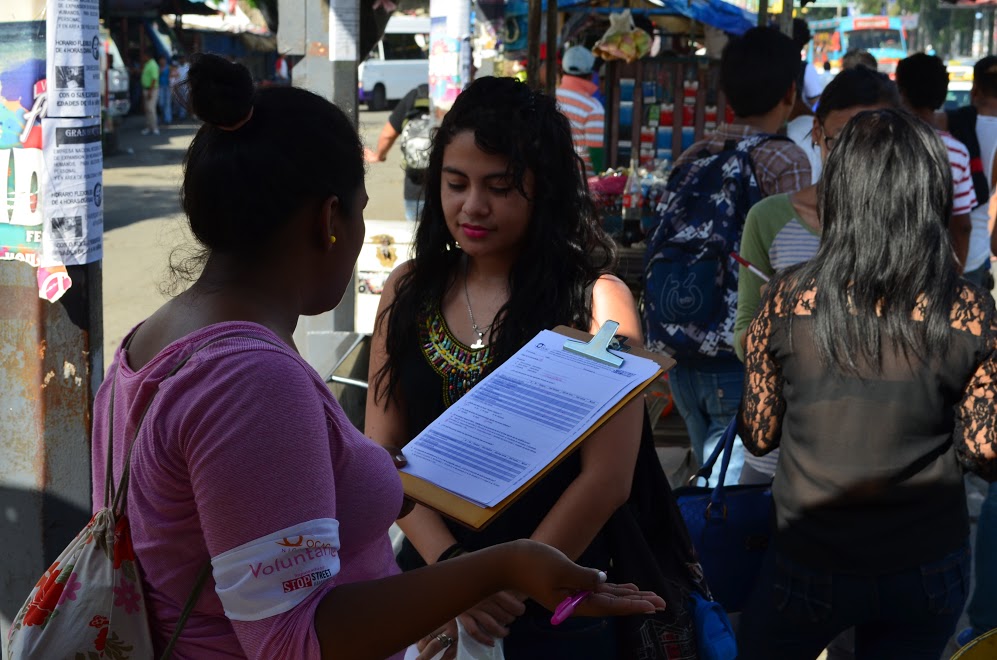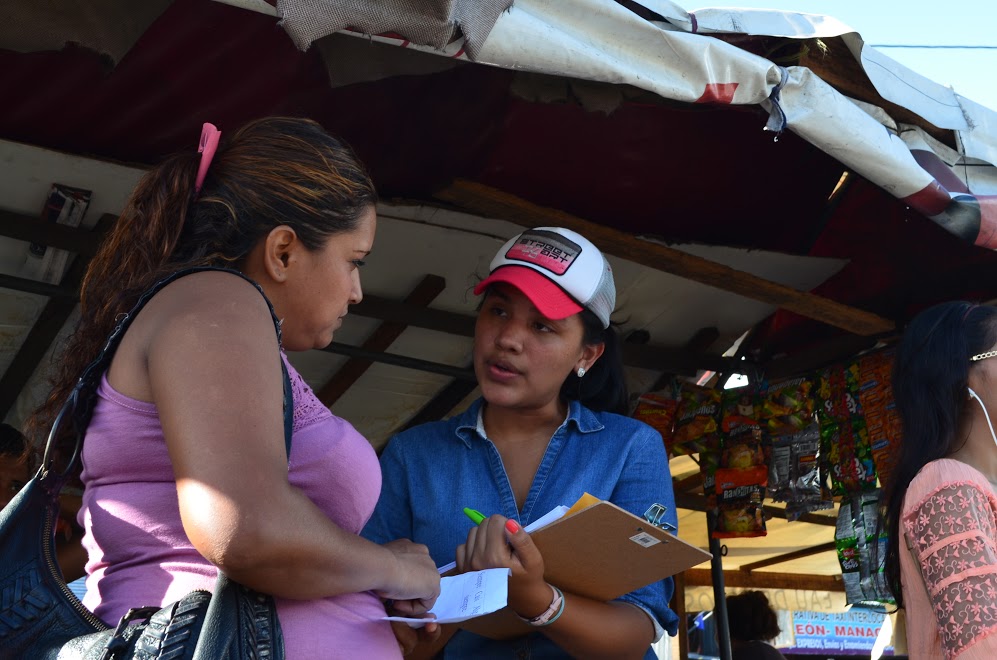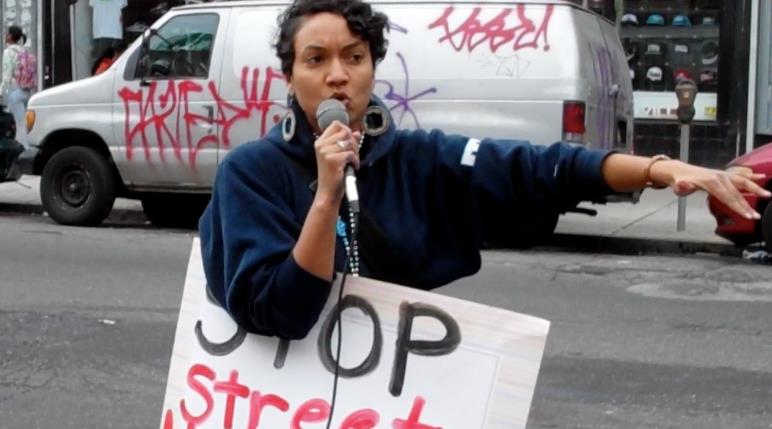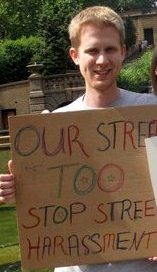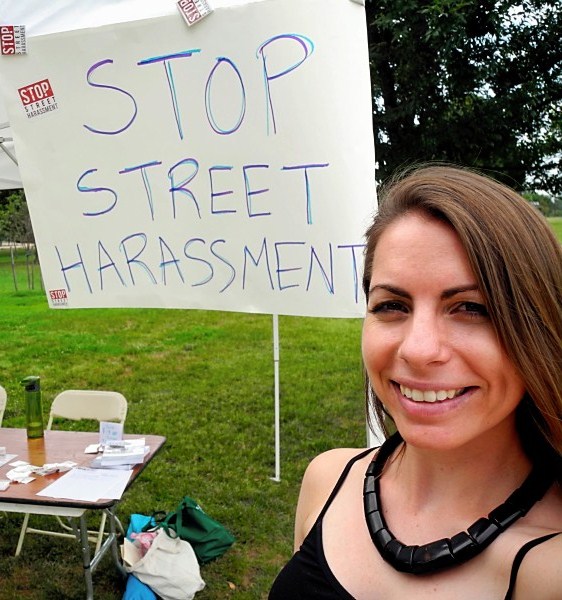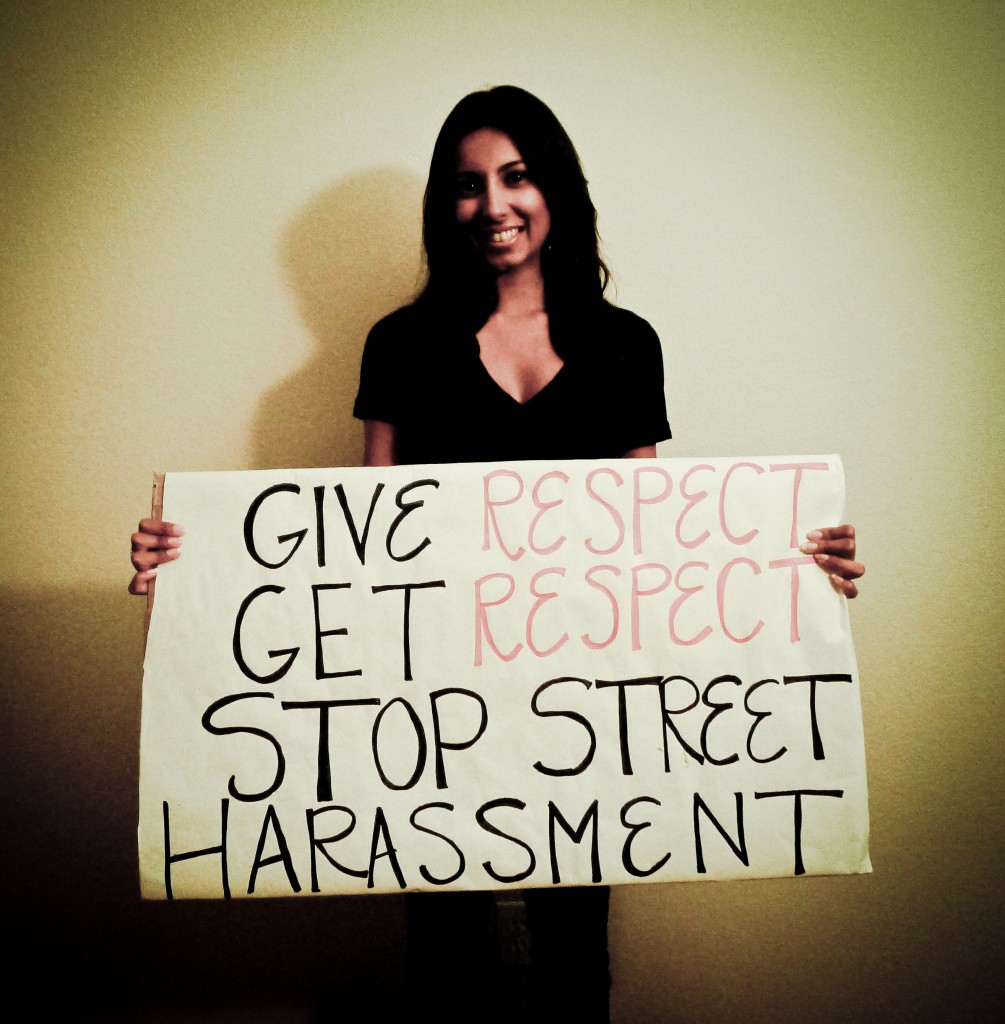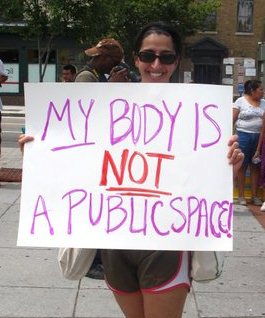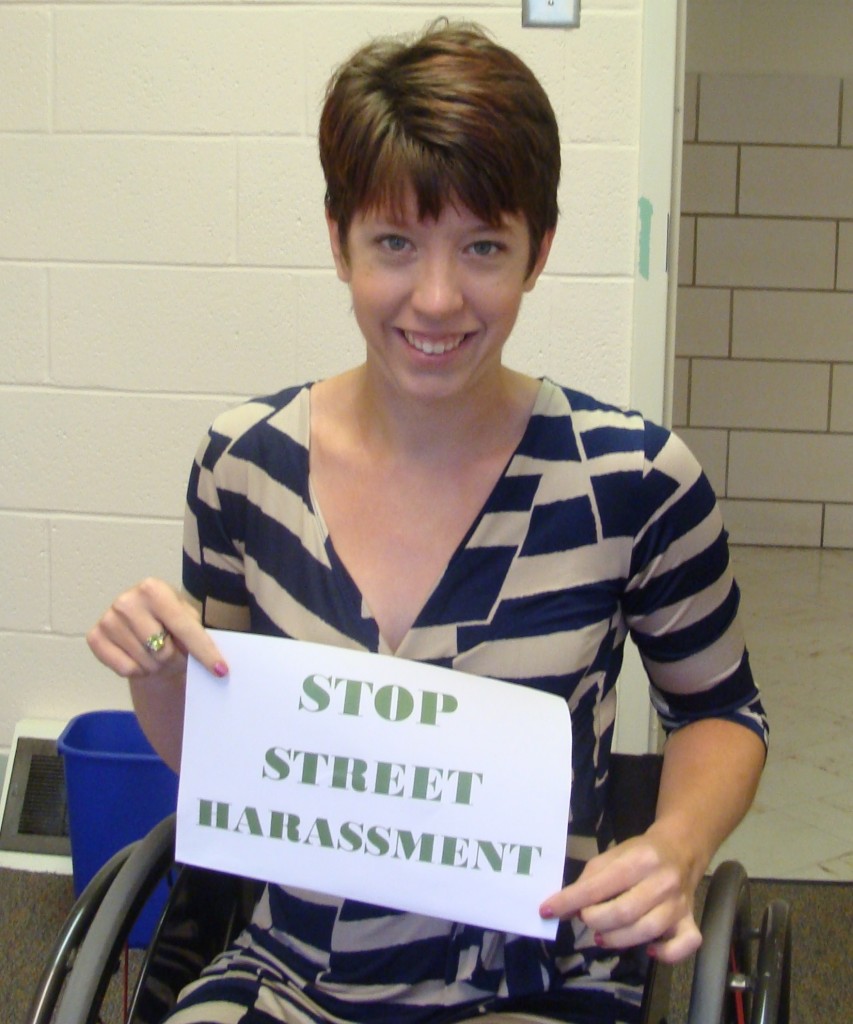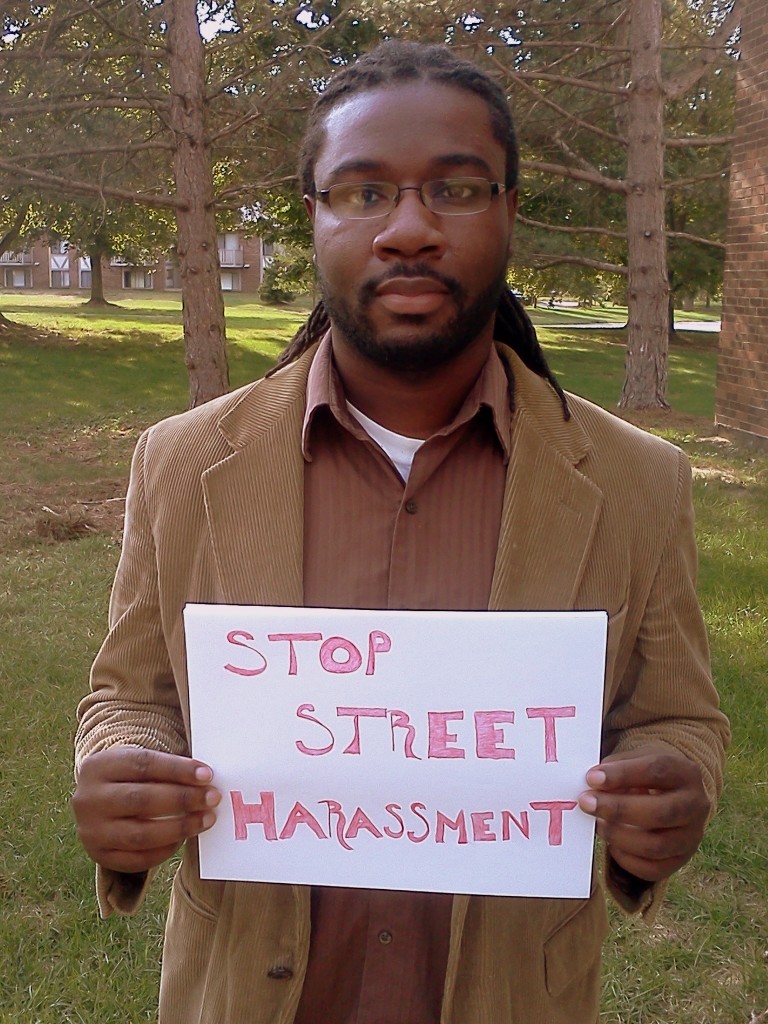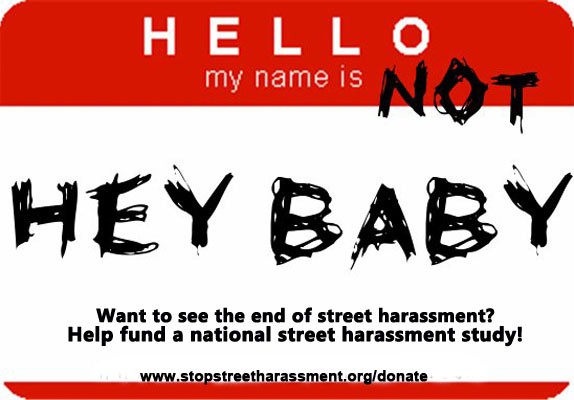This post is from our Safe Public Spaces Team in Kathmandu, Nepal. The SPSM projects are supported by SSH donors. If you would like to donate to support the 2015 mentees, we would greatly appreciate it!
Harassment in the streets of Kathmandu has been so normal that it is almost taken for granted. Street harassment like cat calling and explicit evaluative commenting can lead to bigger psychological repercussions in the future. The main aim of our Safe Public Spaces project, ‘Acts of Defiance’ is to help make Kathmandu a safe space for people of all ages to live in. Hence, Hollaback! Kathmandu acts as a catalyst to encourage the victim to fight back and raise their voice against street harassment. Our project entitled ‘Acts of Defiance’ was divided into two phases.
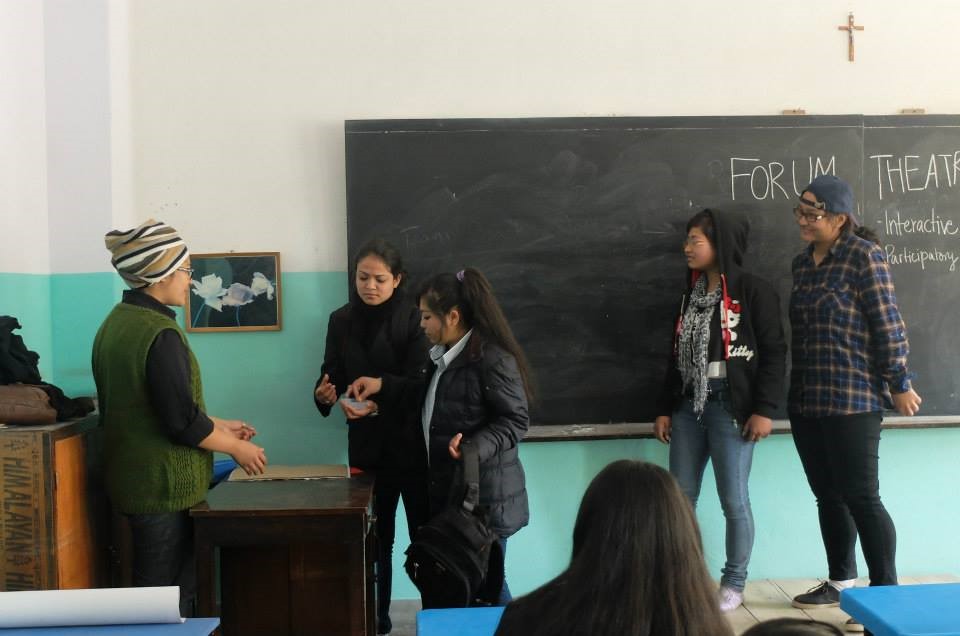 Our first phase of the project, Forum Theater was conducted in early January. The main objective of conducting the forum theater is to generate awareness in an interactive and participatory manner so that the students get a public platform to contribute their views and knowledge on street harassment and as well as inculcate the learning by doing methodology in them. The motive behind focusing on the youth is because this is the prime age to be aware about the dimensions of street harassment. The storyline of the forum theater revolved around the scenario of high school girls and how they are subjected to street harassment on a regular basis. Through the forum theater, we aimed to portray the life of a teenage girl on the street and on the public vehicle and showed the various kinds of harassment they faced every day.
Our first phase of the project, Forum Theater was conducted in early January. The main objective of conducting the forum theater is to generate awareness in an interactive and participatory manner so that the students get a public platform to contribute their views and knowledge on street harassment and as well as inculcate the learning by doing methodology in them. The motive behind focusing on the youth is because this is the prime age to be aware about the dimensions of street harassment. The storyline of the forum theater revolved around the scenario of high school girls and how they are subjected to street harassment on a regular basis. Through the forum theater, we aimed to portray the life of a teenage girl on the street and on the public vehicle and showed the various kinds of harassment they faced every day.
 We also wanted to exhibit their reactions to the harassment and the kind of reactions that bystanders showed when they saw someone being harassed. The drama was divided into two scenes and after each scene, the students were encouraged to come up with a better response –(both by the victim and a bystander) to the harassment scenario with the help of some brainstorming.
We also wanted to exhibit their reactions to the harassment and the kind of reactions that bystanders showed when they saw someone being harassed. The drama was divided into two scenes and after each scene, the students were encouraged to come up with a better response –(both by the victim and a bystander) to the harassment scenario with the help of some brainstorming.
The session was fun and informative for the students which opened them up to the live action of the happenings in the community. It worked as a driving agent which led students to talk about their past experiences and encounters. Moreover, the audiences were informed about the existing law of our country related to the harassment and it also encourage them to fight back and to stimulate critical discussions around the issue of street harassment.
There were other actions we took, too.
On December 5, 2014, Hollaback! Kathmandu conducted a Self Defense session for about 50 female refugees for UNHCR Nepal. The session was provided to the refugees from diverse nations such as Afghanistan, Pakistan, Somalia, Nigeria and Vietnam. The primary goal of our self defense session was to provide the participants with basic tips on how to defend themselves should they ever come across harassment in public spaces. We aim to equip the most vulnerable groups with the necessary tips so that they can defend themselves. Ayesha, a twenty- three year old refugee from Pakistan said, “It was a very new experience for us. Earlier, we did not know that we could use our body as weapons. But after the session, we learned to use our body as a weapon to protect ourselves.”
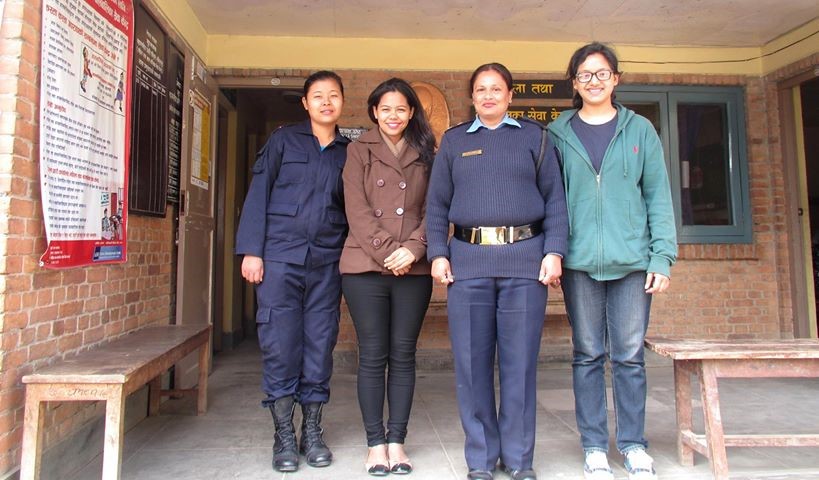 We were featured in a local television media program on Social Advocacy to discuss on the issue of street harassment. The 30 minute interview session included different discussions on the situation of street harassment in Nepal and also threw light on the fact that street harassment is a global problem and that strict actions needed to be taken to mitigate it.
We were featured in a local television media program on Social Advocacy to discuss on the issue of street harassment. The 30 minute interview session included different discussions on the situation of street harassment in Nepal and also threw light on the fact that street harassment is a global problem and that strict actions needed to be taken to mitigate it.
As part of the 16 Day Activism Campaign to End Violence Against Women, Hollaback! Kathmandu also organized a visit to the local women police station. The Police Center also has separate female constables to deal with the female victims of violence. Inspector Khadka said, “We try to solve the situation in a non-violent manner. If there is violence in a marriage, we give the husband a warning and try to settle the issue in a cohesive manner. We also provide counseling classes for men to sensitize them about gender. One of our volunteers, Aakriti shares her experience as, “Some of the new things that really amazed me was the fact that the police officials are not so cold-natured as we’ve heard about through other people. They were in fact very supportive when it came to issues regarding Women and Children.
Through December, we celebrated the Violence Against Women (VAW) Activism Campaign and conducted activities to aware the youths about the issue of street harassment. The session was led by our volunteers where a video related to women, violence was shown and the students were encouraged to have a discussion after watching the documentary.. In the VAW Session, our volunteers went across 9 schools and impacted 513 youths in total. Along with the informative session at schools and colleges, we also organized a #orangeurhood campaign where our volunteers made posters and youths from different backgrounds came together to support the campaign.
This had been an ecstatic ride for Hollaback! Kathmandu and we still seek for many ways to make the public spaces safer.

